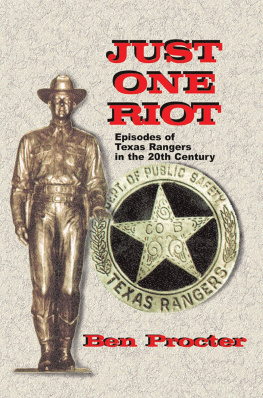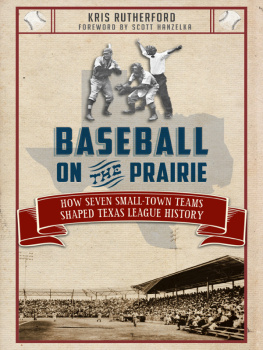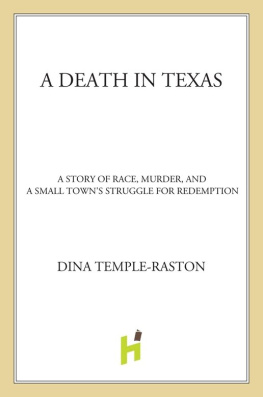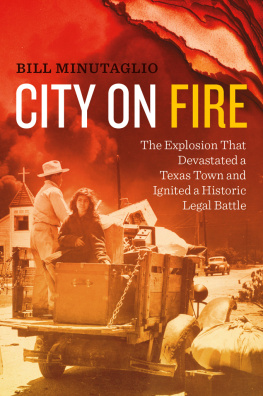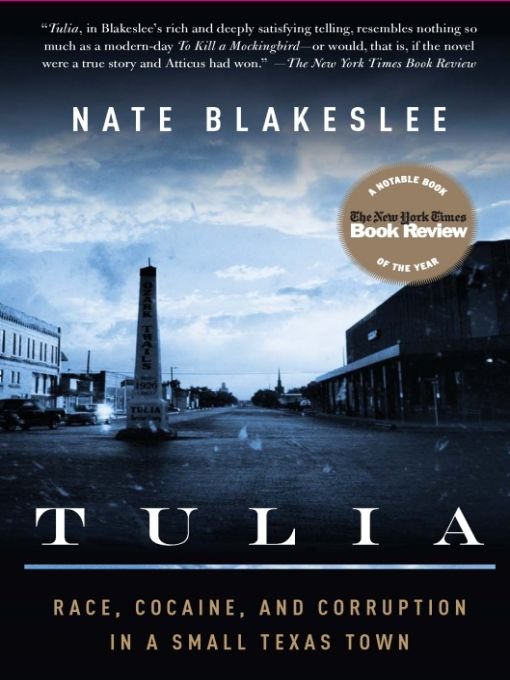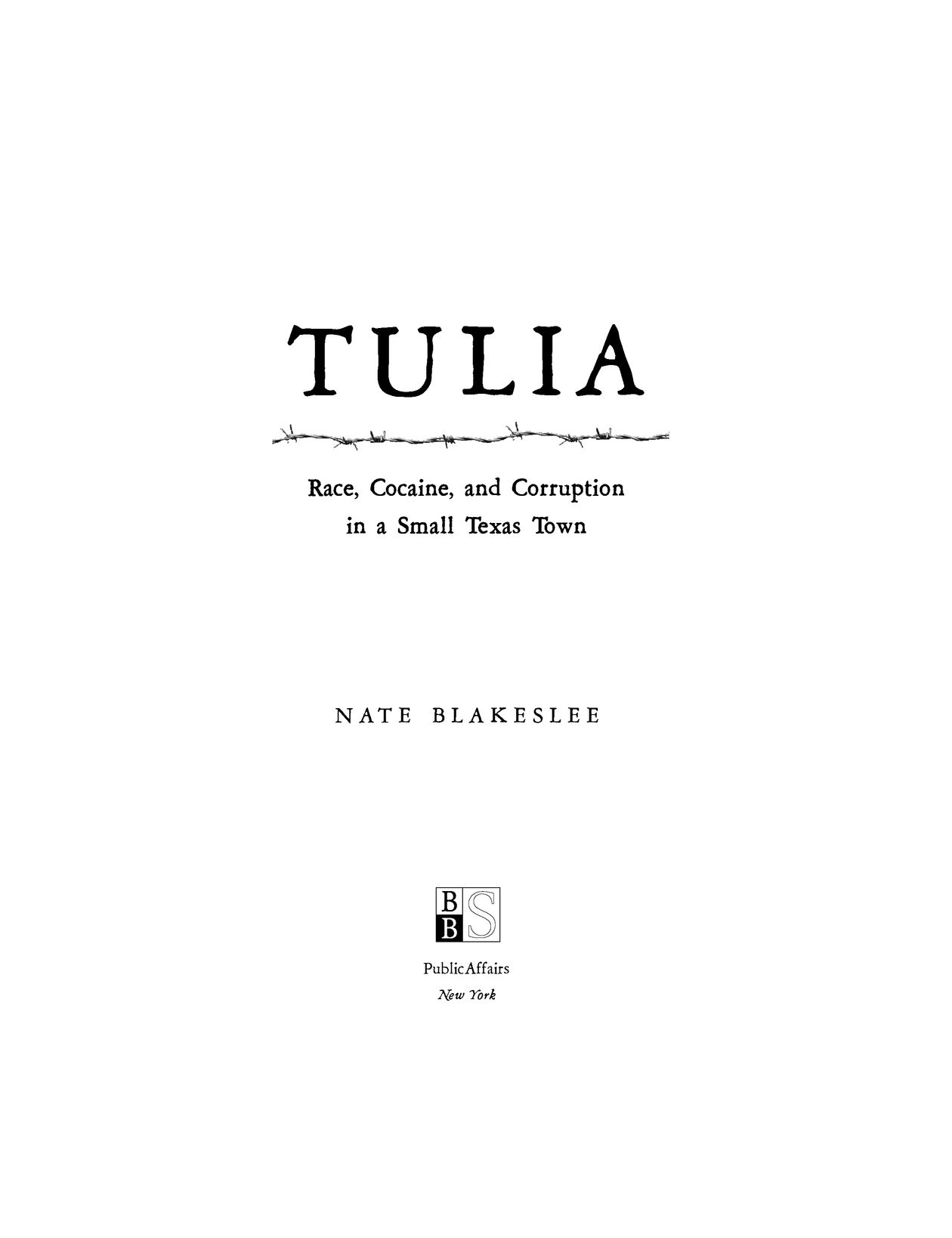Table of Contents
Praise for Nate Blakeslees Tulia
A devastating critique of Texas judicial system and the nations drug laws. But it is foremost a riveting legal thriller about the inspirational men and womenincluding those in and around Tuliawho refused to let the injustice stand. Atticus Finch, after all, was from a small Southern town, too. And Tulia, in Blakeslees rich and deeply satisfying telling, resembles nothing so much as a modern-day To Kill a Mockingbird.... No one might have heard of Tulia, not even Blakeslee, were it not for a diverse group of local lawyers and rabble-rousers, as colorful as they were unlikely, who took up the cause early on. Blakeslee gives them their just and entertaining due.... With equal nuance and sympathy, Blakeslee analyzes the underlying attitudes that prepared so many white Tulians to believe, against all probability, that a major drug ring was operating in their midst. Blakeslee has a masterly grasp of the regions history, from the impact of United States agricultural policies to postwar politics. And he is brilliant on the gossip and petty rivalries that drive agendas in any small town.
Sara Mosle, The New York Times Book Review
Blakeslees excellent and eminently readable book is a wonderful story of justice triumphant... his vivid portrait of law enforcement gone wrong suggests that there are more Tulias than there are lawyers dedicated enough to expose them.
David Garrow, The Washington Post Book World
A first-rate piece of injustice journalism, the kind of book that outrages while it fascinates.... A prime example of true crime reporting. The bonus is that it may be second only to Buzz Bissingers Friday Night Lights as a slice of hardscrabble Panhandle life.... A dramatic, David-vs.-Goliath story.
Jerome Weeks, Dallas Morning News
[Blakeslees] reporting... is superb.
Steve Weinberg, The San Francisco Chronicle
Blakeslees book is a cautionary tale; a fine example of true-crime reportage crafted of practical prose, reminding us that in the absence of practical solutions to our social ills, the tragedy in Tulia will never be considered a mere aberration.
The Austin Chronicle
Reporting at its very best.
Tucson Citizen
The story of Tulia is about much more than even the subtitle of Blakeslees book suggests. Its about America writ large. Thats the real story that Blakeslee found in the Panhandle.
Barbara Belejack, Texas Observer
[An] eye popping book of reportage.
Newark Star-Ledger
Those familiar with the travesty of justice that led to multiple bogus drug arrests in the small Texas town of Tulia only from newspaper accounts will be outraged anew at this eye-opening narrative that bears comparison to such courtroom and litigation classics as A Civil Action.... A masterpiece of true crime writing. Award-winning reporter Blakeslee broke the story for the Texas Observer in 2000 and has produced a definitive account.... As with Errol Morriss film exposing corrupt Texas law-enforcement, The Thin Blue Line, this haunting work will leave many wondering how many other Tulias there are out there.
Publishers Weekly
Blakeslees prose is crystalline.... Blakeslees portrait of Tuliaa place where white and black live side by side but separately and warilyis indelible.
Mother Jones
The tale, expertly researched and written, goes much deeper, however, than a botched bust. At its heart, this was a travesty arising from racial bigotry, drug-war hysteria and the desperation and hopelessness of poverty in small-town America. Blakeslee weaves these elements throughout a terrific piece of reporting and writing.
The San Diego Union-Tribune
Nate Blakeslees reporting and storytelling skills... are up to the task.
Brad Tyer, The Houston Chronicle
Nate Blakeslee tells this tawdry story in brilliant and captivating detail.... As Blakeslee superbly reports, the truth is dramatic and tragic enough.
Cary Clack, San Antonio Express-News
If you read just one book to understand what has gone wrong with narcotics enforcement in this country, read Tulia. It is a Fast Food Nation for the drug war.
Ann Richards, former governor of Texas
Tulia is an important book on politics, race, and hypocrisy that reads like a courtroom thriller.
George Pelecanos, author of Drama City and Soul Circus
Most of us like to think institutional racism in the South is dead, but this is one example of how common it remains. True, justice triumphs in the end, which is always nice, but Nate Blakeslee exposes even more here than a single frame-up by a bent narc. This is reporting at its bestdetailed, in context and beautifully written.
Molly Ivins
In Tulia, Nate Blakeslee delivers a one-two punch of relentless reporting and heartfelt story-telling to show how a rogue undercover cop tramples justice and ruins dozens of innocent lives. By digging deep into the astonishingly corrupt 1999 drug bust in Tulia, Texas, Blakeslee meticulously exposes the underbelly of drug enforcement run amok and unchecked.
Dick Lehr, author of Black Mass: The True Story of an Unholy Alliance Between the FBI and the Irish Mob
For Karen
PART ONE
PROLOGUE: MARCH 20, 2003
TOM COLEMAN entered the courtroom of the Swisher County courthouse on Thursday afternoon, March 20, 2003, wearing an Italian-style black leather jacket over a blue shirt and black tie. A sea of black faces in the packed gallery craned their necks to get a glimpse of him, but he did not return their gaze. Coleman kept his eyes fixed straight ahead, his head tilted slightly downward, as he marched up the aisle toward the front of the small courtroom. It had become a familiar posture for the former narcotics officer over the preceding week. Each morning, he had been forced to run a gauntlet of photographers and reporters waiting outside the courthouse for him. They had snapped countless photos of him scurrying up the steps of the courthouses side entrance in his black cowboy hat and dark sunglasses, but he had spoken not a word. Today was the day they were all waiting for, the day he would have no choice but to take the stand and break his silence. Four satellite trucks were in the parking lot, waiting to beam news of his testimony from this tiny west Texas town to the world.
The courtroom on the second floor of the Swisher County courthouse was not designed with great deeds in mind. It is a utilitarian facility of fluorescent lights and cheap linoleum and hard-backed church pews for the gallery, a courtroom where trials are run as efficiently and economically as the farms and ranches of the plainsmen whose hard-earned tax money built it. Yet it had been the scene of Colemans greatest triumphs as a police officer, the place that had made him, however briefly, a hero. Posing as a down-and-out construction worker, Coleman had worked undercover for eighteen months in Tulia, during which time he reported making over 100 purchases of illegal drugs, mostly powdered cocaine. The suspects were arrested in a massive raid in July 1999. When the smoke had cleared, Colemans one-man operation had netted no fewer than forty-seven cocaine dealers, most of them black. It was a stunning success. For his accomplishment, Coleman was named an Officer of the Year, the most coveted award among Texas narcs. He went to Austin to have his picture taken with John Cornyn, the state attorney general (later elected U.S. Senator). The papers called him a one-man wrecking crew, a lone ranger. In fact, he was the son of a Texas Ranger, the mythical corps of elite lawmen celebrated the world over for their prowess and bravery. Coleman had finally filled his fathers giant boots.


